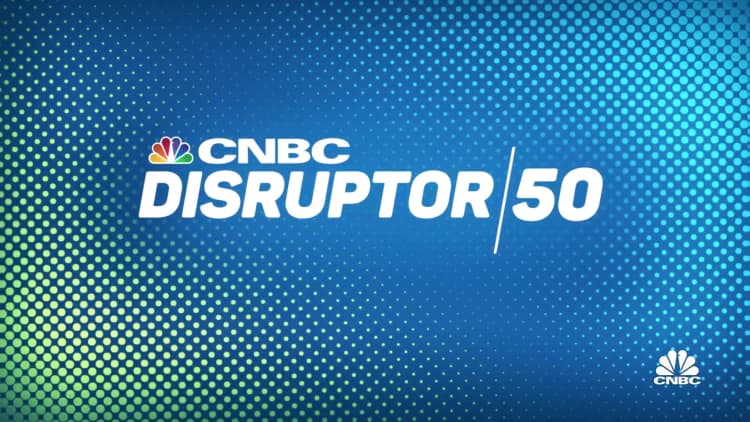Founder: Tim Ellis (CEO), Jordan Noone
Launched: 2015
Headquarters: Long Beach, California
Funding: $1.3 billion
Valuation: $4.2 billion
Key technologies: Artificial intelligence, machine learning, robotics, digital twins
Industry: Aerospace, transportation
Previous appearances on Disruptor 50 List: 2 (No. 36 in 2022)
Relativity Space launched its first 3D-printed rocket from Cape Canaveral, Florida, this March, and while the test flight failed to reach orbit, the space startup hasn't paused in its goal of offering a cheaper and quicker-to-manufacture rocket for future missions to the moon and Mars.
Founded in Long Beach, California, by CEO Tim Ellis, a rocket space engineer previously with Blue Origin, the company aims to challenge Elon Musk's SpaceX and is among a number of commercial entrants testing rockets that can carry payloads to orbit and ultimately complete missions.
Relativity Space is transforming the market with automated aerospace manufacturing that integrates intelligent robotics, algorithms, machine learning and 3D printing of rocket parts that can be reused. It's continuing a series of tests of its 3D-printed rockets at prices for commercial missions that are far less than the launch cost of NASA's Space Shuttle in 1981.
The company's futuristic rocket factory features the Stargate and Reaper giant metal 3D printers that created the company's first 3D-printed rocket, the Terran 1, and are now focused on its Terran R, a second larger, reusable rocket designed for commercial and governmental use. The company recently told CNBC it is going all-in on the bigger design, and as a result would shift to use some conventional metals manufacturing in addition to its novel 3D-printing process. Through a partnership this past June with Los Angeles-based transport specialist Impulse Space Propulsion, Relativity Space aims to deliver an inaugural commercial payload to Mars on the Terran R by 2024.
The global space economy is expected by Citi Global Perspectives & Solutions to generate $1 trillion in annual sales by 2040. That's up from $469 billion in 2021, according to U.S. nonprofit The Space Foundation. Satellites, which make up 70% of today's space market, could triple to $697 billion by 2040.
In this intensifying space exploration race, the priority is on substantially lower launch costs through reusable rockets and launch vehicles, new materials and fuels, more cost-efficient production methods, and advancements in robotics and electronics systems, the Citi report noted.

Billionaire investor and serial entrepreneur Mark Cuban originally backed the company in 2016, and has continued to support the rocketry startup in successive rounds. Other investors include Tiger Global, BOND and Fidelity Research and Management. In its fifth round of funding, in June 2021, the rocketry startup pulled in $650 million at its current $4.2 billion valuation.
While Relativity Space is targeting customers from commercial operators to the U.S. government, NASA is its most notable customer. In 2022, Relativity Space inked a 20-year partnership to expand its facilities and infrastructure at NASA's Stennis Space Center in Mississippi. The expansion will support tests of its 3D-printed engines on 150 acres within the complex.
Earlier milestones include an agreement in 2019 to work with satellite provider OneWeb to develop a collaborative broadband service. It also teamed up in 2021 to deliver six satellites for Iridium Communications, which recently announced an agreement to put its satellite technology in smartphones.
Sign up for our weekly, original newsletter that goes beyond the annual Disruptor 50 list, offering a closer look at list-making companies and their innovative founders.






















































